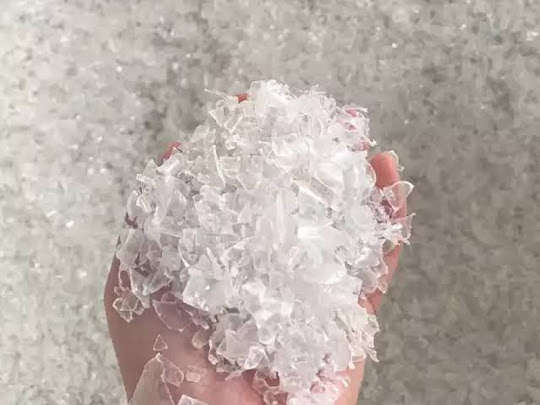PET Flakes Manufacturer: Powering the Circular Economy
In an era where sustainability is no longer optional but essential, the role of a PET flakes manufacturer has become increasingly vital. Polyethylene Terephthalate (PET) is one of the most popularly used plastics in the world, commonly found in the beverage bottles, food containers, and packaging materials. However, the environmental impact of using single-use plastics has led to a global push for recycling and reuse. This is where PET flakes manufacturers step in—transforming post-consumer PET waste into valuable raw materials that fuel a circular economy.
What Are PET Flakes?
PET flakes are small, clean, and uniformly sized pieces of recycled PET plastic. They are produced by collecting, sorting, cleaning, and shredding used PET bottles and containers. These flakes serve as the raw material for a wide range of products, including:
- Polyester fibers for textiles and carpets
- Strapping materials
- Thermoformed packaging
- Automotive parts
- New PET bottles (in food-grade applications)
The quality of PET flakes directly impacts the performance and safety of the end products, making the manufacturing process a critical component of the recycling value chain.
Importance of Quality Control
For a PET flakes manufacturer, maintaining high standards of quality control is non-negotiable. Impurities such as PVC, metals, or organic residues can compromise the integrity of the recycled product. Therefore, many manufacturers invest in advanced technologies like:
- Optical sorters
- Metal detectors
- Infrared spectroscopy
- Automated quality monitoring systems
These tools help ensure that the PET flakes meet industry standards, especially when they are intended for food-grade applications.
Market Demand and Applications
The demand for recycled PET (rPET) is growing rapidly across industries. Governments and corporations are setting highly ambitious targets for recycled content in packaging, textiles, and consumer goods. As a result, PET flakes manufacturers are experiencing increased demand from:
- Textile companies producing polyester yarn
- Packaging firms seeking sustainable alternatives
- Automotive and electronics manufacturers
- Construction and industrial sectors
This surge in demand is also driving innovation in processing techniques and expanding the global footprint of PET recycling facilities.
Sustainability and Environmental Impact
By converting waste into reusable raw materials, PET flakes manufacturers play a crucial role in reducing landfill waste, conserving natural resources, and lowering greenhouse gas emissions. Every ton of recycled PET saves approximately:
- 1.5 tons of CO₂ emissions
- 4,000 kWh of energy
- 16 barrels of oil
Moreover, the use of recycled PET reduces the dependency on virgin plastic, which is derived from fossil fuels. This aligns with global efforts to combat the impacts of climate change and promote responsible consumption.
Challenges in the Industry
Despite its benefits, the PET flakes manufacturing sector faces several challenges:
- Inconsistent supply of clean PET waste
- High operational costs for advanced sorting and cleaning
- Regulatory hurdles for food-grade certification
- Market volatility in raw material prices
To overcome these issues, manufacturers are forming partnerships with waste management companies, investing in automation, and advocating for stronger recycling policies.
Conclusion
A PET flakes manufacturer is more than just a recycler—they are a key player in the global movement toward sustainability. By transforming discarded plastic into high-quality raw materials, they enable industries to reduce their environmental footprint and embrace circular production models. As awareness and demand for eco-friendly solutions continue to rise, the importance of PET flakes manufacturers will only grow, making them indispensable to a greener future.
.jpg)
.jpg)
.jpg)

Comments
Post a Comment